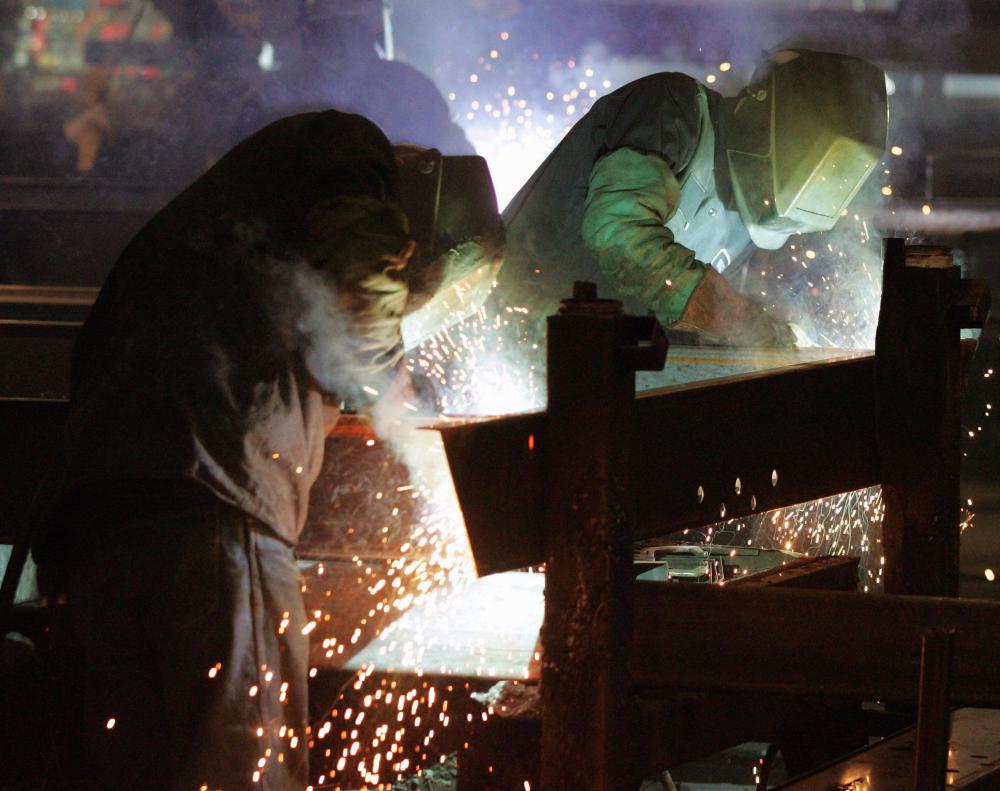At WiseGEEK, we're committed to delivering accurate, trustworthy information. Our expert-authored content is rigorously fact-checked and sourced from credible authorities. Discover how we uphold the highest standards in providing you with reliable knowledge.
What Is the Difference between Physical and Human Capital?
Business enterprises make use of several different types of capital. Two of the more common categories utilized in assessing the resources of companies include physical and human capital. There is sometimes confusion as to what is meant by these terms, making it necessary to draw distinctions between the two. Essentially, human capital has to do with the resources that employees bring to the workplace, while physical capital focuses on physical assets such as facilities or equipment that are used in the business operation.
In distinguishing between physical and human capital, it is important to note that these two forms of capital are both necessary in order for a business to operate but focus on different aspects of the overall business operation. Human capital begins with the basic skills that employees bring to the job when first hired, but typically continue to expand over time. This occurs when employers provide opportunities for additional training to occur. This training has the potential to not only enhance the existing skills of the employee but also to allow that employee to develop and hone new skills that are of value in the workplace. In addition, the experience gained over time also increases this pool of human capital. The process of human capital management itself is aided by efforts made by the human resources team, supervisors and managers, and even the employees themselves as they seek to increase their value to the employer.

The effective use of both types of capital requires that employees have the resources on hand to accomplish the tasks associated with their jobs. This is where the company’s physical capital comes into play. Since this form of capital encompasses the facilities and the equipment used in the business operation, care must be taken to ensure that the facilities are safe, improving the chances that employees can function efficiently. At the same time, the machinery and other equipment found in the facilities must also be up to date and capable of functioning properly. In the best of circumstances, this union of physical and human capital, involving adequate facilities and equipment matched with trained personnel, greatly enhances the potential of the business to be productive and ultimately profitable.

The proper combination of physical and human capital will vary, based on the type of business operation involved. Some companies utilize a great deal of automation, which in turn requires a lower amount of human capital while requiring more physical capital. Other businesses are more people-driven and rely more on human capital than physical facilities and lots of equipment. In either case, properly assessing the need for each and taking steps to develop both types of assets properly will help position the company for growth, something that will over time benefit everyone involved.
AS FEATURED ON:
AS FEATURED ON:












Discussion Comments
@pleonasm - There are definitely some places where they treat their employees extremely well in order to attract the best of the best and hold on to them.
But in bad economic times when there are a lot of people out of work, companies don't need to treat their employees so well.
I read a really interesting article the other day about how they have perfected a way to make the perfect cup of coffee without a person needing barista training. In fact, the coffee was always better from this machine than it would be from a person trained to make coffee.
But people still preferred the hand-made coffee, because it had a story and it had flaws. It was unique, while the machine made coffee was the same every time.
I don't think we're quite at the point where every company needs to start thinking of ways to replace human capital with physical capital, but I do take comfort in the fact that human consumers tend to prefer human expertise.
@irontoenail - That only really works with the kinds of jobs that are simple enough for machines to do them. And even then, there's usually a good reason that it takes people a while to pick up the skills needed.
Besides, even the best machines tend to depreciate and need replacing over time, while, if you treat them well, human capital will only appreciate over time.
It's difficult to know whether or not a business should invest in human capital when physical capital is so much more reliable. If you give training to people they can easily leave to go and use their new found skills at another company. The machinery isn't going to do that.
I think it's one of the reasons that more and more companies are beginning to try and automate as much as possible. It's so much cheaper to invest in better technology than it is to try and get people in and train them to do a job.
Post your comments